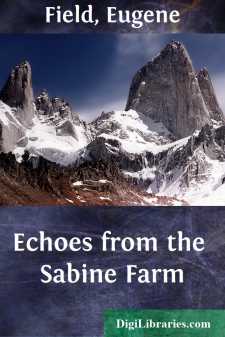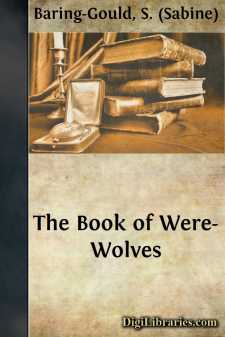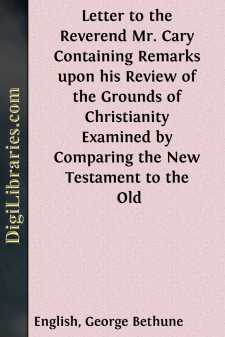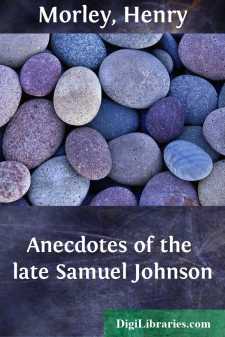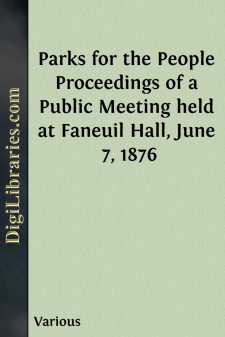Non-Classifiable
- Non-Classifiable 1768
Non-Classifiable Books
Sort by:
by:
Eugene Field
INTRODUCTION One Sunday evening in the winter of 1890 Eugene Field and the writer were walking in Lake View, Chicago, on their way to visit the library of a common friend, when the subject of publishing a book for Field came up for discussion. The Little Book of Western Verse and The Little Book of Profitable Tales had been privately printed the year before at Chicago, and Field had been frequently...
more...
NATURAL CAUSES OF LYCANTHROPY. Innate Cruelty--Its Three Forms--Dumollard--Andreas Bichel--A Dutch Priest--Other instances of Inherent Cruelty--Cruelty united to Refinement--A Hungarian Bather in Blood--Suddenness with which the Passion is developed--Cannibalism; in pregnant Women; in Maniacs--Hallucination; how Produced--Salves--The Story of Lucius--Self-deception. WHAT I have related from the...
more...
Your eloquent and interesting Sermons on Infidelity, I have read with the interest arising from the nature of the subject you have discussed, and the impressive manner in which you have treated it. As it is understood that the appearance of those Sermons was owing to a Book lately published by me, I request your pardon for a liberty I am about to take, which in any other circumstances I should blush to...
more...
CHAPTER ITHE FORMER ABUNDANCE OF WILD LIFE"By my labors my vineyard flourished. But Ahab came. Alas! for Naboth." In order that the American people may correctly understand and judge the question of the extinction or preservation of our wild life, it is necessary to recall the near past. It is not necessary, however, to go far into the details of history; for a few quick glances at a few high...
more...
by:
Anonymous
THE PREFACE. The many Inhabitants of Cities and Towns, as well as Travellers, that have for a long time suffered great Prejudices from unwholsome and unpleasant Beers and Ales, by the badness of Malts, underboiling the Worts, mixing injurious Ingredients, the unskilfulness of the Brewer, and the great Expense that Families have been at in buying them clogg'd with a heavy Excise, has moved me to...
more...
by:
Henry Morley
INTRODUCTION Mrs. Piozzi, by her second marriage, was by her first marriage the Mrs. Thrale in whose house at Streatham Doctor Johnson was, after the year of his first introduction, 1765, in days of infirmity, an honoured and a cherished friend. The year of the beginning of the friendship was the year in which Johnson, fifty-six years old, obtained his degree of LL.D. from Dublin, and—though he...
more...
by:
John Bunyan
'We have this treasure in earthen vessels, that the excellency of the power may be of God, and not of us.'—2 Cor 4:7 'For my thoughts are not your thoughts, neither are your ways my ways, saith the Lord.'—Isaiah 55:8. 'Though ye have lien among the pots, yet shall ye be as the wings of a dove covered with silver, and her feathers with yellow gold.'—Psalm 68:13. When...
more...
by:
Various
Pursuant to a call published in all the daily papers, and signed by a large number of prominent citizens and tax-payers of Boston, a public meeting was convened in Faneuil Hall on the evening of Wednesday, the 7th of June, 1876, to take action on the recommendations contained in the Report of the Park Commissioners. The hall was crowded by an intelligent and enthusiastic audience; and the proceedings...
more...
by:
John Spargo
Socialism is undoubtedly spreading. It is, therefore, right and expedient that its teachings, its claims, its tendencies, its accusations and promises, should be honestly and seriously examined.—Prof. Flint. My Dear Mr. Edwards: I count it good fortune to receive such letters of inquiry as that which you have written me. You could not easily have conferred greater pleasure upon me than you have by...
more...
by:
Anonymous
No description available


